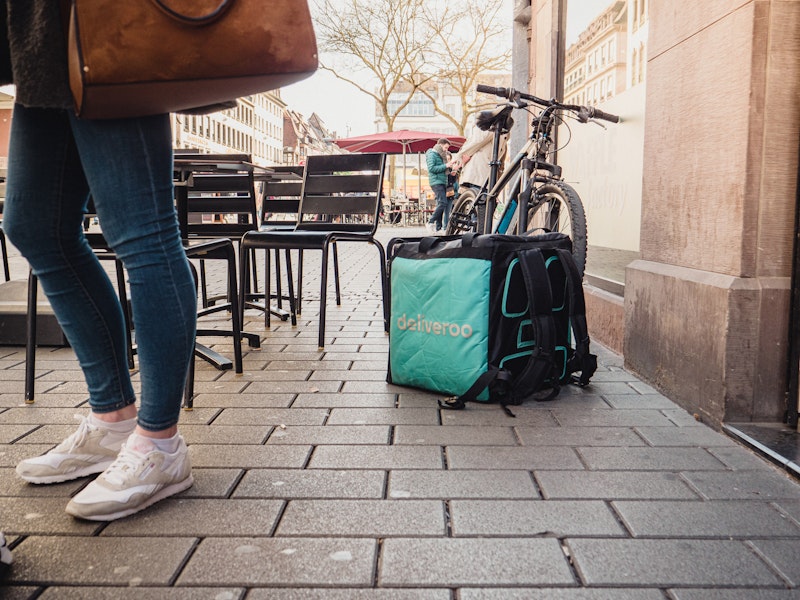News from IDS Brief: Deliveroo riders do not fall within scope of Article 11 ECHR trade union rights
News | 5 December 2023

In the case of Independent Workers Union of Great Britain v Central Arbitration Committee and another, the Supreme Court ruled that food delivery riders did not establish an 'employment relationship' as defined by Article 11 of the European Convention on Human Rights. Consequently, the protections outlined in Article 11, which safeguard the right to form and join trade unions, do not extend to them, and the union representing these riders could not rely on Article 11 to assert that the definition of a 'worker' in S.296(1) of the Trade Union and Labour Relations (Consolidation) Act 1992 (TULR(C)A) should be construed in a manner that does not exclude riders from the statutory recognition procedure under Schedule A1.
Deliveroo riders work under agreements which describe them as independent contractors and state that there is no obligation on Deliveroo to provide work and no obligation on the rider to be available at any time or to accept jobs. The agreement allows riders to provide a substitute, who may be employed or engaged directly by the rider, without need for approval by Deliveroo. Previously, IWGB applied unsuccessfully to the Central Arbitration Committee under the compulsory recognition procedures in Schedule A1 to the TULR(C)A to be recognised for collective bargaining in respect of a group of Deliveroo riders. The CAC rejected IWGB’s application on the ground that the riders were not 'workers' under S.296(1) TULR(C)A. The key argument presented was that this ‘almost unfettered’ right of substitution disproved the union’s argument that the contracts were for personal service. The IWGB applied for judicial review of the CAC’s decision. The only argument to proceed was that the right to collective bargaining as protected by Article 11 ECHR required an interpretation of S.296(1) TULR(C)A and the personal service obligation that did not exclude the riders from the statutory recognition procedure. The High Court dismissed the judicial review challenge, holding that Article 11 was not engaged (Brief 1109). The Court of Appeal dismissed IWGB’s appeal against this decision (Brief 1141). IWGB appealed to the Supreme Court.
The Supreme Court examined CAC’s scrutiny of the relationship between Deliveroo and the riders, which highlighted how the agreements between Deliveroo and the riders operated in practice. The CAC found that the provisions in the contract genuinely reflected the true relationship between the parties and that it was not an employment relationship. This included the broad and virtually unfettered right to appoint a substitute to take on their jobs, in addition, the CAC found that Deliveroo did not police a rider’s decision to use a substitute and riders would face no sanctions for doing so. The CAC also found that the agreement between the riders and Deliveroo was missing many other aspects of a standard employment relationship, including there being no clauses that prevented riders working for competitors, all equipment was at the riders’ expense; there was no periodic payment; their place of work was not specified or agreed; they were not required to be available; and they were not protected from financial risk. Having concluded that the riders were not in an employment relationship for the purposes of Article 11, the Supreme Court dismissed IWGB’s appeal.
Related News & Insights
-
Real Estate Networking Drinks
Events | 26 March 2026
-
Leading employment and education lawyer, Emma Thompson to speak at global ADHD conference
News | 29 September 2025
-
The psychology of managing a hybrid team at work
Articles | 20 August 2025
-
The broader context of an employee’s complaint to be considered when assessing victimisation (Kokomane v Boots Management Services)
News | 3 July 2025













